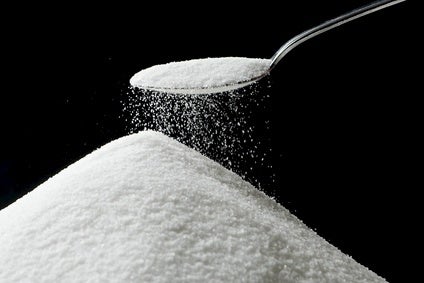The publication of a seven-point “plan” to tackle child obesity by UK-based campaign group Action on Sugar on Sunday (22 June) has thrust sugar back into the spotlight.
The statement came ahead of the publication tomorrow (26 June) of the draft report on Carbohydrates and Health by the UK government’s Scientific Advisory Committee on Nutrition (SACN).
The action plan was dismissed by the Food and Drink Federation (FDF) as the “usual catalogue of industry bashing”. The FDF is partly right in that there’s nothing particularly new here. What is certainly different, however, is the context.
The focus in the diet and health debate is now firmly on sugar. That Action on Sugar was asked to come up with a strategy by the Health Secretary Jeremy Hunt is significant. This government has a somewhat ailing multi-stakeholder policy platform, the Public Health Responsibility Deal (PHRD), that requires more enthusiastic engagement from non-industry partners to remain credible.
The role of the PHRD was underlined further today when its chair, Professor Susan Jebb, addressed an event at the Science Media Centre. Significantly, Professor Jebb said new policy options should be explored, including taxation. Professor Jebb’s remarks also further showed how added sugar is now being emphasised in debates around dietary preventive health policy, saying there was a “specific link” between sugar-sweetened beverages and weight gain.
As with any campaign, Action on Sugar is asking for more than it expects to get. The inclusion of measures related to advertising, sponsorship, portion sizes and so forth are there because they see them as important, but there is unlikely to be much movement on them. The measures specifically related to sugar, however, namely a reduction in added sugar in processed food through reformulation and a sugar tax, are a different matter.

US Tariffs are shifting - will you react or anticipate?
Don’t let policy changes catch you off guard. Stay proactive with real-time data and expert analysis.
By GlobalDataProfessor Jebb’s support for at least considering a sugar tax follows the call for the introduction of a sugar tax by Chief Medical Officer Dame Sally Davies earlier in the year.
However, on its call for a sugar tax, Action on Sugar is likely to be disappointed. Sin taxes are problematic politically, there is scant evidence that they are effective in fighting obesity – a point conceded by Professor Jebb today – and they are regressive.
However, some form of sugar reduction pledge – it is pushing for a reduction in added sugars of 40% by 2020 through reformulation – could gain more political and public traction. Whereas the evidence for the effectiveness of a sugar tax is sketchy at best, Action on Sugar can point to the successful record in the UK of a similar push on reducing salt levels. Action on Sugar was formed out of the Consensus Action on Salt and Health campaign, and its principal emphasis since its inception in January has been on driving down sugar levels in processed food.
As with the salt reduction pledge, a sugar reduction pledge would be a voluntary commitment by industry so it would not seem overly heavy-handed. The criticism that such policies are symptomatic of the ‘nanny state’ could still be made but not to the degree that would be provoked by advocating a sugar tax.
And this government already has the policy vehicle into which to slot such an undertaking, in the form of the PHRD, where the industry’s commitment on salt reduction now resides.
Moreover, one of the most controversial aspects of the PHRD, and a focus for criticism from campaigners, is the absence of pledge on sugar. The general undertaking on calorie reduction is not deemed fit for purpose by health campaigners, and it certainly does not take account of the way the debate has shifted to focus on added sugars.
One could easily see the attraction to policymakers of urging food companies to do something specifically on sugar reduction. The industry can certainly expect to be asked the question, even if its defence that its commitment to calorie reduction is sufficient eventually prevails.
And then there is SACN. Tomorrow’s draft report and nine-week consultation period further guarantee that the sugar issue will be much discussed. As indeed it will be at a conference to be held on 9 July at the Royal Society in London.
The Sugar Reduction Summit, which is billed as a not-for-profit event supported by The Wolfson Institute of Preventive Medicine, boasts an impressive range of speakers from all sides of the debate.
Action on Sugar chairman Professor Graham MacGregor and Dr Alison Tedstone, director of diet and obesity and chief nutritionist at Public Health England, will be among those addressing the conference, along with representatives from the Department of Health, the Food and Drink Federation and the British Retail Consortium. It promises to be an extremely interesting event, with some lively debate and just-food will be there.





